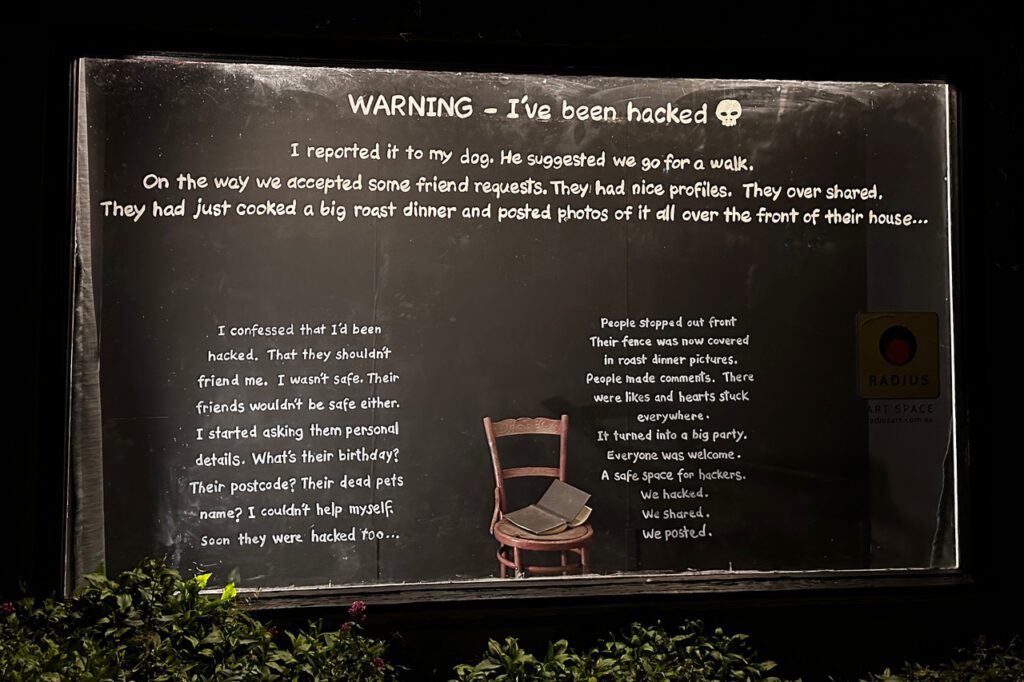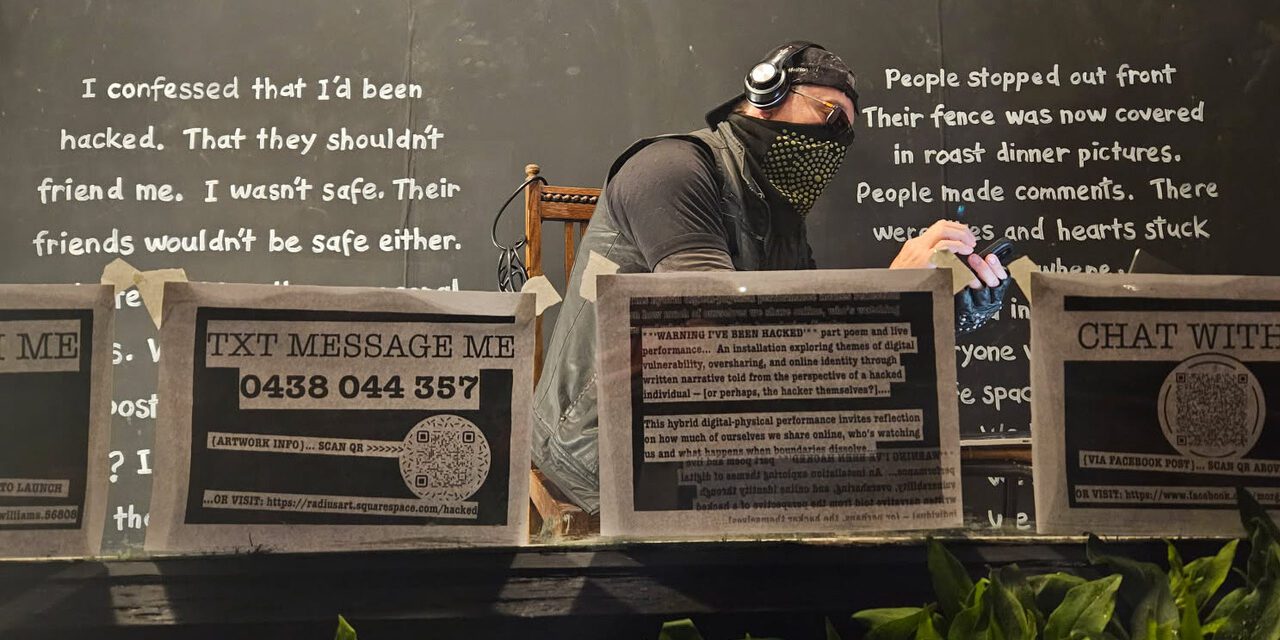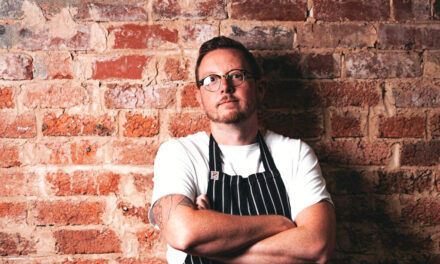Morgan Williams
Most of us have experienced some sort of online hack or scam. Often, it’s someone gaining access to our online identity by guessing a weak password. Sometimes it’s via a fake profile trying to seduce our friends into giving the fake you some money. Or it might even be a dodgy call centre pretending you’re at risk, all they need is your credit card to make you safe again!
Hacking and scamming have become big business in our digital world. Having been hacked and scammed a few times I decided to make an artwork about the experience for this year’s Words in Winter festival. I painted the inside wall of our front window at Radius Gallery black. I wrote a whimsical poem on the walls in big white text about being hacked a few weeks prior. Full of mystery & intrigue, with a dash of humour.
On opening night, I turned the piece into a performance, locking myself in the front window dressed as a hacker, surrounded by my poem. I only communicated with on lookers via my screen in social media and text messages. I changed my online identity to reflect my artwork. It was a bit thrilling and also isolating. It was hard not to look up and see who was there at the window watching me. It was exhausting keeping up with all the chats happening at once on my phone and laptop. The mask I wore made breathing hard. My dark glasses difficult to see. When I got likes and hearts online, I cut out little emoji’s from bits of paper and stuck them to the window. I wrote comments on sticky notes. I felt trapped, I knew people behind me were enjoying champagne at our exhibition opening. Is this what it feels like working as a hacker or scammer? Imprisoned behind screens while others have fun in the outside world.
Click farms exposed us to the underbelly of our digital world. 10 years ago, images emerged with teams of people operating hundreds of devices in factories being paid to like, share, comment. Enslaved in third world countries on low wages boosting online engagement. This led to scam & hack farms being setup for political manipulation too. Troll farms used to suppress or drown out dissent and amplify misinformation are now rife. These methods have even been used to undermine democracy’s and spread fear and hate far and wide.
I intended to adjust my profiles after the performance, but life got in the way. About a week later my account was frozen, it was deemed to be breaching community safety standards. My account was now against cyber safety rules. I was incensed, how could they ban me for my art? I was highlighting the fragility and vulnerability of their systems. At first, I felt a loss. I’d spent over 15 years cultivating my online persona. All those memories gone. Those online friends vanquished. Friendaversaries no more. After a few days a new freedom emerged. One less thing to do in my day. More time in the real world!
While I initially intended to explore the blurred space between online activism, identity and digital vulnerability, the process revealed much more. My personal addiction to the dopamine hits, the dichotomy between connection and isolation, the effect algorithms can have on our communication – these thoughts have been whirling around in my mind ever since. As is sometimes the case with art, the process of making can reveal more than we imagine at the onset. I’ve been forced to reflect on my personal freedom, identity and sense of connection. I will certainly never forget my ‘self-hack’ for Words in Winter 2025!

This month at Radius we have films, workshops, music and more. If you have some art for this year’s Swiss Italian Landscape show time to get cracking, entries close 20th September! For info on everything happening, check out our website.
Morgan Williams is the co-director with Kim Percy of Radius Art Space. His art practice spans a 30 year period and explores a diverse range of mediums and topics.




